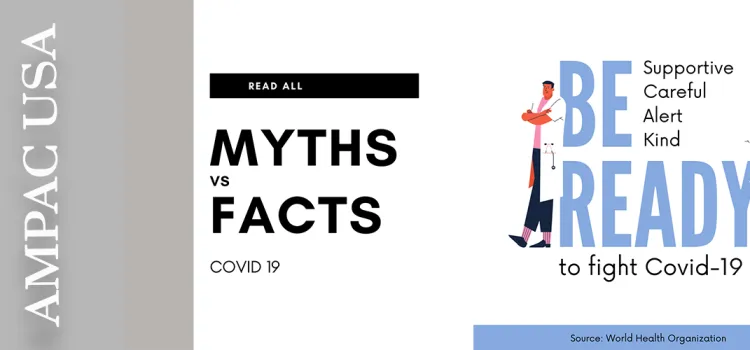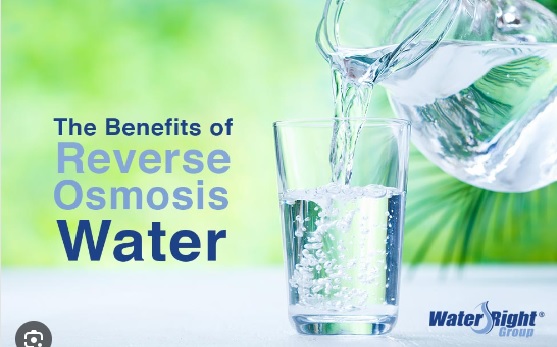Reverse osmosis water is generally considered safe and healthy to drink. It effectively removes contaminants, ensuring purified water.
Reverse osmosis systems have become a popular solution for individuals seeking to enhance the quality of their drinking water. These systems leverage a semipermeable membrane to filter out impurities, including harmful chemicals and bacteria, offering a reliable way to access clean water in your home.
By stripping away unwanted substances, reverse osmosis not only contributes to water safety but also improves taste and odor, making it a preferred choice for many seeking peace of mind in their water consumption. It’s an investment in health that aligns with the modern desire for purity in drinking water, reflecting a growing awareness of water quality issues.

Reverse Osmosis Water Demystified
Drinking pure water is crucial for health. Reverse osmosis (RO) technology helps remove impurities. This leaves us with clean drinking water. Here’s a look at how it works and what components make it possible.
The Basics Of Reverse Osmosis Technology
The essential process of reverse osmosis pushes water through a fine membrane. This removes tiny particles and contaminants from the water. Clean water passes through. Unwanted substances get flushed away.
Key Components Of An Ro System
- Pre-filters: Remove large particles before RO.
- RO Membrane: The heart of the system, traps contaminants.
- Post-filters: Polish water to improve taste.
- Storage tank: Holds purified water.
- Drain line: Disposes of the contaminants.
- Faucet: The RO unit’s delivery point.
Each part is essential for creating safe, drinkable water.

Health Implications Of Ro Water Consumption
Exploring the health implications of reverse osmosis (RO) water leads us to consider diverse views. RO systems are popular for their effectiveness in purifying water. They remove impurities and contaminants, promising cleaner drinking water. But, is it wholly beneficial for our health?
Pros Of Drinking Ro Water
RO water touts a number of advantages:
- Eliminates Toxins: RO systems remove lead, mercury, and other toxins. This is critical for health.
- Reduces Disease Risk: The purification process reduces the risk of diseases linked to unclean water.
- Improves Taste and Smell: The process enhances the sensory quality of water, making it more enjoyable to drink.
- Portable Solution: RO systems fit under your sink or on countertops. They provide clean water at home.
Potential Drawbacks And Concerns
On the flip side, there are some concerns to consider:
- Removes Essential Minerals: RO can strip out minerals like calcium and magnesium that your body needs.
- Waste Water: The filtration process produces water waste. This is an environmental concern.
- Needs Regular Maintenance: Filters and membranes in RO systems require routine replacement.
- Acidity Increase: RO water can be slightly more acidic than tap water. This may be a concern for some.
Comparing Ro Water To Other Types Of Drinking Water
Many people ask whether reverse osmosis (RO) water is good for them. Understanding how this water compares with others is key. This comparison will focus on RO and tap water and then RO versus bottled water.
Ro Vs. Tap Water: A Quality Assessment
RO water is different from tap water. Here’s why:
- RO water is purer. It goes through a thorough filtration process that removes contaminants better than most tap waters.
- Minerals are scarce in RO water. Unlike tap water which can have minerals, RO systems remove most of them.
- Chlorine taste and smell? Not in RO water. Tap water often contains chlorine for purification, which RO filters out.
- RO systems can be at home. Instead of going miles for clean water, an RO system provides it right from your tap.
Bottled Water And Ro Water: What Sets Them Apart?
Distinguishing RO water from bottled water is clear when considering these factors:
| Factor | RO Water | Bottled Water |
|---|---|---|
| Purity | High | Varies |
| Cost Over Time | Lower | Higher |
| Environmental Impact | Less Waste | Plastic Bottles |
| Taste | Consistent | Can Differ |
RO water means reliable purity and taste right at home. Bottled water offers convenience but at a higher cost and with more waste.

Nutritional Profile Of Ro Water
The quality of the water you drink plays a crucial role in your health. Reverse osmosis (RO) water stands out as a popular choice. It’s known for its purity, but there’s more to consider when evaluating its nutritional content.
Mineral Content After Reverse Osmosis
RO systems effectively remove impurities from water. This includes a vast array of minerals. After undergoing reverse osmosis, water often lacks key minerals like calcium, magnesium, and potassium. These minerals are essential for body functions.
| Mineral | Function in Body | Presence in RO Water |
|---|---|---|
| Calcium | Bone health | Low |
| Magnesium | Muscle function | Low |
| Potassium | Heart health | Low |
The Debate On Water Remineralization
Some experts argue that the lack of minerals in RO water could be detrimental to health. Our bodies expect a certain level of minerals from the water we consume. To address this, many opt for remineralization filters or add trace mineral drops to their RO water.
- Remineralization filters add essential minerals back into water.
- Trace mineral drops can also boost the mineral profile of RO water.
The Environmental Footprint Of Ro Water
Reverse Osmosis (RO) water is popular for its purity. Yet, it carries a hidden cost – the environmental impact. RO systems are effective at filtration but we must consider their ecological consequences.
Sustainability Concerns With Ro Systems
RO systems can strain the environment. There are several reasons for this:
- Waste water generation: These systems expel more water than they purify.
- Energy consumption: RO systems use significant electricity, contributing to resource depletion.
- Filter replacement: They require regular filter changes, resulting in plastic waste.
Eco-friendly Alternatives And Innovations
As sustainability becomes a priority, alternatives emerge:
- Gravity-based filters that require no electricity.
- Water-saving technologies aimed at reducing waste.
- Biodegradable or recyclable filter materials.
These innovations reduce ecological footprints and offer greener hydration options.
Making An Informed Choice For Hydration
Choosing the right water for hydration is essential. Reverse Osmosis, or RO, water often comes up in conversations about healthy drinking habits. It is crucial to know if RO water fits your specific hydration needs. This article will guide you through the process of making an informed decision on whether RO water is right for you.
Evaluating Your Water Needs
Before deciding on RO water, consider your personal needs. Ask yourself a few key questions:
- What is the quality of my tap water?
- Am I getting the necessary minerals in my diet?
- Do I have any health conditions that affect my water needs?
RO water is pure, removing contaminants and minerals. This can be good or bad, based on individual dietary requirements. Some may need to replace minerals lost during the RO process.
Guidelines For Choosing A Water Filtration System
Selecting a water filtration system involves more than water taste. It’s about health and safety. Below are the guidelines to help you choose an RO system:
| Factor | Detail |
|---|---|
| Contaminant Removal | RO systems can remove pollutants like lead, arsenic, and bacteria. |
| Mineral Reintroduction | Some systems add minerals back into the water after filtration. |
| Installation and Maintenance | Choose systems that are user-friendly and easy to maintain for long-term use. |
| Cost | Consider both initial investment and running costs of the RO system. |
| Water Waste | RO systems can waste water. Look for systems with lower waste ratios. |
Remember, the best system is one that meets your specific needs while ensuring safety and quality.
Frequently Asked Questions For Is Reverse Osmosis Water Good For You
What Is Reverse Osmosis Water’s Impact On Health?
Reverse osmosis water is typically pure and free from contaminants, making it generally safe and beneficial for health. Its high purity can be advantageous, especially in areas where tap water quality is poor. However, it also removes beneficial minerals, which may require supplementation.
Can Drinking Reverse Osmosis Water Aid Hydration?
Yes, reverse osmosis water aids in hydration effectively, similar to regular water. It strips out impurities that can sometimes hinder water absorption in the body. However, since it removes some natural minerals, individuals may need to compensate for this loss through diet or re-mineralization of the water.
How Does Reverse Osmosis Water Taste Compared To Tap?
Reverse osmosis water often tastes cleaner and fresher than tap water because the filtration process removes many of the substances that can cause unpleasant flavors. This includes chlorine, lead, and other common contaminants found in municipal water supplies.
Is Reverse Osmosis Water Eco-friendly?
Reverse osmosis systems are not the most eco-friendly due to water waste and filter replacements. The process uses more water than it produces, leading to waste. Eco-conscious individuals may explore additional water-saving features or alternative filtration methods that are more sustainable.
Conclusion
Understanding the impact of reverse osmosis on your health is crucial. This filtration method strips water of contaminants, along with some beneficial minerals. Consider reintroducing minerals with a balanced diet or a remineralization filter. Ultimately, the purity of reverse osmosis water can contribute to a cleaner and healthier lifestyle.
Choose wisely for your hydration needs.

